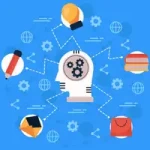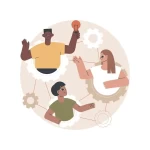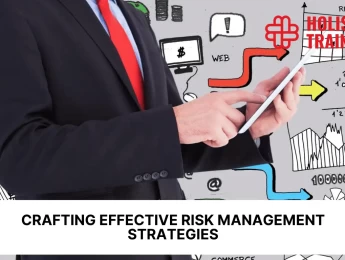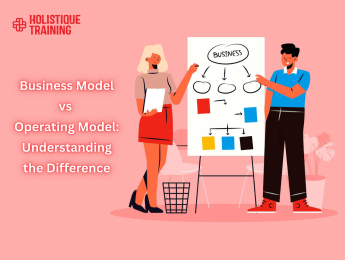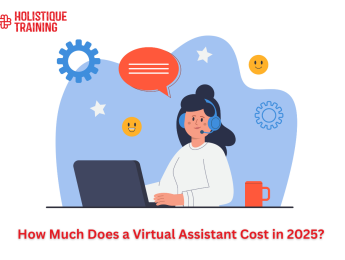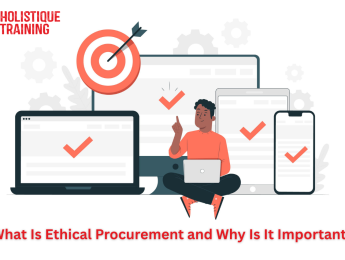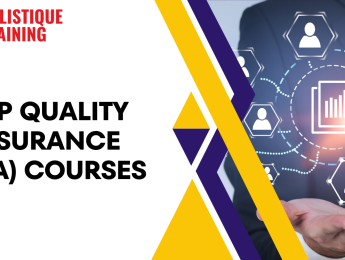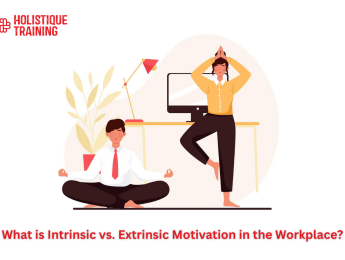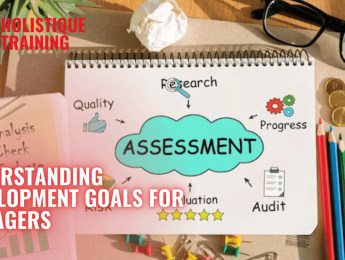Introduction
Self-education is a lifelong journey that continuously empowers individuals to acquire new skills and knowledge outside traditional academic settings. This pursuit of learning enhances personal growth and equips individuals with the tools necessary to adapt and thrive in an ever-evolving world.
What Is Self-Education?
Self-education refers to the process of acquiring knowledge and skills through one's initiative and resources without formal instruction or enrollment in an academic institution. It involves using various methods such as reading books, online courses, tutorials, and experiential learning to expand one's understanding and expertise in various fields. This form of learning is driven by curiosity, passion, and a desire for self-improvement.
The essence of self-education lies in its flexibility and autonomy. Unlike traditional education, where the curriculum is predetermined, self-education allows individuals to tailor their learning experiences to suit their interests and goals. It encourages a proactive approach to learning, where individuals take charge of their educational journey, identifying gaps in their knowledge and seeking out resources to fill them.
Why Is Self Education Important?
The significance of self-education extends far beyond personal enrichment; it plays a pivotal role in shaping a person’s ability to navigate the complexities of modern life. Here’s an in-depth look at why self-education is crucial:
1. Adaptability and Resilience
The modern world is characterised by rapid technological advancements and continuous industry changes. This dynamic environment requires individuals to be adaptable and resilient. Self-education fosters these traits by encouraging a mindset of continuous learning. Those who engage in self-education are better equipped to stay current with new technologies, methodologies, and industry trends. This adaptability enhances career longevity and ensures that individuals can pivot and thrive amidst change.
For example, consider the tech industry, where new programming languages and tools emerge frequently. A self-educated software developer who continuously learns and updates their skills will be more resilient to shifts in the job market than someone who relies solely on formal education.
2. Personal Empowerment
Self-education is a journey driven by personal interest and initiative. It empowers individuals by giving them control over their learning paths. This autonomy boosts self-confidence and instils a sense of accomplishment. When individuals realise they can acquire knowledge and skills independently, they gain confidence in their ability to tackle challenges and achieve their goals.
This empowerment extends beyond professional life. For instance, someone who teaches themselves a new hobby or skill, such as playing a musical instrument or speaking a new language, experiences personal growth and fulfilment. This empowerment through learning contributes to overall well-being and happiness.
3. Enhanced Problem-Solving Skills
Self-education inherently involves problem-solving. Individuals must identify knowledge gaps, seek resources, and apply new information effectively. This process develops strong analytical and critical thinking skills essential for solving complex problems.
These enhanced problem-solving skills are invaluable in a workplace setting. For example, employees who have taught themselves project management techniques can identify bottlenecks, devise solutions, and implement strategies efficiently. Their ability to think critically and solve problems independently makes them a valuable asset to any organisation.
4. Career Advancement
Continuous learning is a key driver of career advancement. Self-education allows individuals to stay competitive in their fields by acquiring new skills and knowledge relevant to their profession. Employers value employees who commit to personal and professional growth through self-directed learning.
For instance, a marketing professional who self-educates on the latest digital marketing trends and tools will be more adept at developing innovative strategies, thereby increasing their value to the organisation. This proactive approach to learning can lead to promotions, salary increases, and greater job security.
5. Lifelong Learning
The pursuit of knowledge should not end with formal education. Self-education fosters a love for learning that lasts a lifetime. It encourages individuals to remain curious, open-minded, and intellectually engaged. This lifelong learning mindset contributes to continuous personal growth and intellectual enrichment.
Engaging in lifelong learning has numerous benefits. It helps keep the mind active and sharp, reduces the risk of cognitive decline in older age, and promotes overall mental health. Lifelong learners are also more likely to experience a sense of purpose and fulfilment, as they continuously explore new ideas and perspectives.
6. Personal Fulfilment and Enrichment
Learning new things can be incredibly fulfilling. Self-education allows individuals to explore topics they are passionate about, leading to personal enrichment and satisfaction. Pursuing knowledge for its own sake can enhance the quality of life and provide a sense of achievement.
For instance, someone interested in history might spend their free time reading historical texts and visiting museums. This self-directed learning satisfies their curiosity and enriches their understanding of the world and their place in it.
7. Flexibility and Customisation
Traditional education systems often follow a rigid curriculum, which may not cater to the unique interests and needs of every individual. Self-education, on the other hand, offers unparalleled flexibility. Learners can choose what, when, and how to study, tailoring their education to their specific goals and interests.
This customisation is particularly beneficial for those with diverse or unconventional career paths. For example, an entrepreneur might need to learn various skills, including finance, marketing, and product development. Through self-education, they can create a personalised learning plan that addresses all these areas, thus equipping them with the necessary tools to succeed.
8. Cost-Effectiveness
Formal education, especially higher education, can be prohibitively expensive. Self-education provides a cost-effective alternative. With the abundance of free or low-cost resources available online—such as MOOCs (Massive Open Online Courses), educational websites, and digital libraries—individuals can acquire high-quality education without the financial burden of traditional schooling.
This democratisation of education ensures that learning opportunities are accessible to a broader population, irrespective of their economic background. It empowers individuals to pursue their educational aspirations without incurring significant debt.
9. Encourages Innovation
Self-education often requires learners to seek out new information and think creatively to apply their knowledge. This process can spark innovation and inspire new ideas. Individuals who are accustomed to learning independently are more likely to challenge the status quo and come up with innovative solutions to problems.
For example, many successful entrepreneurs attribute their breakthroughs to self-directed learning. They develop unique perspectives and innovative products or services by exploring diverse fields and integrating knowledge from various disciplines.
10. Building a Growth Mindset
Self-education cultivates a growth mindset—the belief that abilities and intelligence can be developed through dedication and hard work. This mindset is crucial for personal and professional success. It encourages individuals to embrace challenges, learn from feedback, and persist in facing setbacks.
A growth mindset transforms failures into learning opportunities. For instance, if a self-educated coder encounters a bug in their program, they view it as a chance to deepen their understanding and improve their skills rather than a setback. This positive approach to learning and growth fosters resilience and long-term success.
By understanding and embracing the importance of self-education, individuals can unlock their potential, achieve their goals, and lead fulfilling lives. The benefits of self-education extend beyond personal development, contributing to a more adaptable, innovative, and resilient society.
Top 15 Self-Education Skills in 2024
Developing a diverse set of self-education skills is essential for maximising the benefits of this learning approach. Here are fifteen key skills that every self-directed learner should cultivate, with detailed explanations of their importance and application:
1. Time Management
Effective time management is crucial for balancing self-education with other responsibilities. Good time management involves prioritising tasks, setting goals, and creating a structured schedule. For self-directed learners, this means allocating specific time slots for studying and adhering to them consistently. Utilising tools such as calendars, to-do lists, and time-tracking apps can help maintain a disciplined learning routine. By mastering time management, learners can ensure that their educational pursuits do not interfere with work, family, or social commitments.
2. Goal Setting
Clear and achievable goals provide direction and motivation for self-directed learners. Setting both short-term and long-term objectives helps track progress and maintain focus. For example, a short-term goal might be completing a textbook chapter each week, while a long-term goal could be becoming proficient in a new language within a year. By breaking down larger ambitions into smaller, manageable steps, learners can experience a sense of accomplishment that fuels their motivation and keeps them on track.
3. Research Skills
The ability to locate, evaluate, and use information from various sources is fundamental to self education. Strong research skills enable learners to access accurate and relevant information. This involves knowing how to use search engines effectively, discerning the credibility of sources, and synthesising information from multiple references. For instance, researching a complex topic like quantum physics requires sifting through academic papers, books, and reputable online resources to gain a comprehensive understanding.
4. Critical Thinking
Analysing and evaluating information critically allows learners to make informed decisions and develop a deeper understanding of complex subjects. Critical thinking involves questioning assumptions, identifying biases, and considering alternative perspectives. This skill is particularly important in today's information-rich world, where not all information is reliable. For example, a self-educated individual learning about climate change must critically assess data from various studies, understand the methodologies used, and draw reasoned conclusions.
5. Self-Motivation
Staying motivated is essential for self-directed learning. Cultivating intrinsic motivation, driven by curiosity and a desire for self-improvement, helps sustain long-term learning efforts. Self-motivated learners are able to set their own pace and maintain enthusiasm even when faced with challenging material. Techniques such as setting personal rewards for achieving milestones, reminding oneself of the broader purpose behind the learning journey, and seeking inspiration from successful self-learners can bolster self-motivation.
6. Discipline
Self-education requires discipline to adhere to a learning schedule and stay committed to goals. Establishing routines and maintaining a strong work ethic are key to disciplined learning. For instance, a disciplined learner might set aside two hours every morning to study before starting their day. This consistency helps build momentum and ensures steady progress. Over time, disciplined habits can transform self-directed learning from a challenging endeavour into a seamless part of daily life.
7. Problem-Solving
Identifying challenges and developing effective solutions is a critical skill for self-directed learners. Problem-solving abilities enhance the application of knowledge in real-world contexts. This involves understanding theoretical concepts and applying them to practical situations. For example, a self-taught computer programmer encountering a bug in their code needs to diagnose the issue, research potential solutions, and implement a fix. The iterative process of solving problems helps deepen understanding and reinforces learning.
8. Adaptability
Being open to new ideas and approaches allows learners to adapt to changing circumstances and incorporate diverse perspectives into their education. Adaptability is crucial in a world where new information and technologies emerge constantly. Self-educated individuals must be willing to adjust their learning strategies, explore different resources, and embrace unconventional methods. For instance, adapting to online learning platforms or virtual reality environments can provide new and effective ways to engage with material.
9. Communication
Effective communication skills are important for articulating ideas, seeking feedback, and collaborating with others. Engaging in discussions and sharing knowledge enhances the learning experience. For self-directed learners, this might involve joining online forums, participating in study groups, or presenting findings to peers. Good communication also includes listening actively and providing constructive feedback, which fosters a collaborative and supportive learning environment.
10. Digital Literacy
Proficiency with digital tools and online resources is essential for accessing and utilising information in the digital age. Digital literacy enables learners to navigate various platforms and technologies effectively. This includes understanding how to use search engines, manage online learning environments, and utilise software tools relevant to their field of study. For example, a graphic designer learning new techniques might need to master different design software, access online tutorials, and participate in virtual workshops.
11. Reading Comprehension
Understanding and interpreting written material is fundamental to self-education. Developing strong reading comprehension skills enhances the ability to absorb and retain information. This involves not just reading the text but also analysing the structure, identifying key points, and synthesising information. Techniques such as annotating, summarising, and questioning can improve comprehension. For instance, a self-educated historian might read primary source documents, interpret their significance, and connect them to broader historical contexts.
12. Note-Taking
Organising and summarising information through effective note-taking helps reinforce learning and provides a valuable reference for future study. Good note-taking involves capturing key concepts, definitions, and examples in a clear and organised manner. Techniques such as the Cornell method, mind mapping, and digital note-taking apps can enhance the efficiency and utility of notes. For example, a self-educated biology student might use mind maps to visually organise information about different biological processes.
13. Reflection
Reflecting on learning experiences and outcomes fosters deeper understanding and continuous improvement. Regular self-assessment helps identify strengths and areas for growth. Reflection involves thinking critically about what has been learned, how it has been learned, and how it can be applied. This might include keeping a learning journal, conducting regular reviews, and seeking feedback from peers or mentors. For instance, a self-taught artist might reflect on their creative process and outcomes to identify techniques that worked well and areas needing improvement.
14. Networking
Building connections with other learners and professionals in the field can provide valuable insights, resources, and support. Networking facilitates knowledge exchange and collaboration. This might involve joining professional associations, attending conferences, participating in online communities, or engaging in social media discussions. Networking enhances learning and opens up opportunities for mentorship, collaboration, and career advancement. For example, a self-educated entrepreneur might connect with experienced business owners for advice and support.
15. Perseverance
Overcoming obstacles and persisting in the face of challenges is crucial for long-term success in self-education. Developing resilience and a growth mindset helps learners stay committed to their goals. Perseverance involves maintaining effort and interest over time, despite difficulties or setbacks. Techniques such as setting realistic expectations, celebrating small achievements, and learning from failures can foster perseverance. For instance, a self-taught musician might face numerous challenges in mastering an instrument but perseveres through consistent practice and incremental progress.
By developing and honing these self-education skills, individuals can maximise their learning potential and achieve their educational and professional goals. Each skill contributes to a well-rounded, effective approach to self-directed learning, empowering individuals to take charge of their personal and professional growth.
How to Apply Self-Education Skills in the Workplace
Applying self-education skills in the workplace can significantly enhance job performance, career growth, and overall job satisfaction. Here are some strategies for leveraging these skills in a professional setting:
1. Continuous Professional Development
Self-education can be seamlessly integrated into professional development plans. Regularly updating skills and knowledge relevant to one's field ensures that employees remain competitive and capable of meeting evolving job demands. For example, a marketing professional might take online courses on the latest digital marketing strategies, attend webinars, or read industry reports. By continuously learning, employees can bring new ideas and innovations to their roles, making them valuable assets to their organisations.
Implementing a personal development plan that includes specific learning goals, resources, and timelines can help structure this continuous education. Regularly reviewing progress and adjusting goals ensures that learning efforts align with career objectives and industry trends.
2. Problem-Solving and Innovation
The problem-solving skills developed through self-education can be applied to address workplace challenges and drive innovation. Employees who can identify issues, research solutions, and implement effective strategies add significant value to their organisations. For example, an IT professional who has self-taught themselves about a new cybersecurity threat can proactively implement measures to protect company data, thereby preventing potential breaches.
Encouraging a culture of problem-solving and innovation involves fostering an environment where employees feel empowered to take initiative and experiment with new ideas. Providing access to resources and time for self-directed learning can further support this innovative mindset.
Key Performance Indicators (KPIs) | Description |
Learning Progress | Track advancement in acquiring new knowledge. |
Time Management | Efficiently allocate time for learning activities. |
Skill Acquisition | Measure proficiency in newly acquired skills. |
Problem-Solving Ability | Evaluate effectiveness in addressing challenges. |
Feedback Utilisation | Implementing feedback to improve learning outcomes. |
Table: KPIs (Key Performance Indicators) for someone who is self-learning
3. Effective Time Management
The time management skills honed during self-education can enhance productivity in the workplace. Prioritising tasks, setting deadlines, and managing workload efficiently contribute to better performance and job satisfaction. For instance, an employee who balances multiple projects can use techniques like time-blocking or the Pomodoro Technique to maintain focus and efficiency.
Organisations can support effective time management by offering training on productivity tools and techniques, encouraging regular breaks, and promoting a healthy work-life balance. Employees who manage their time well will likely be more productive and less stressed, leading to a more positive work environment.
4. Adaptability to Change
Adapting and learning new skills quickly is crucial in a dynamic work environment. In a 2020 survey conducted by Harvard Business School, 71% of 1,500 executives across over 90 countries identified adaptability as the foremost quality sought in leaders. Employees who embrace self-education are better equipped to handle changes in technology, processes, and industry trends. For example, a graphic designer who keeps up with the latest design software can easily transition to new tools and methods as they emerge.
Promoting a culture of adaptability involves encouraging continuous learning and providing opportunities for employees to acquire new skills. This can be achieved through training programs, access to online courses, and creating a supportive environment where employees feel comfortable taking on new challenges.
5. Enhanced Communication
Strong communication skills enable employees to convey ideas clearly, collaborate effectively, and build strong professional relationships. This enhances teamwork and contributes to a positive work culture. For instance, employees who can clearly articulate their ideas during meetings are more likely to contribute to successful project outcomes.
Organisations can support the development of communication skills by offering workshops and training sessions, encouraging open dialogue, and fostering an inclusive environment where diverse perspectives are valued. Effective communication is key to successful collaboration and conflict resolution in the workplace.
6. Self-Motivation and Initiative
Self-motivated employees take the initiative to seek out learning opportunities and drive their development. This proactive approach demonstrates leadership potential and commitment to personal and organisational growth. For example, an employee who identifies a gap in their knowledge and independently seeks out resources to fill it shows a high level of initiative and dedication.
Encouraging self-motivation and initiative involves recognising and rewarding proactive behaviour, providing growth opportunities, and creating a culture that values continuous improvement. Employees who take the initiative will likely inspire their colleagues and contribute to a more dynamic and forward-thinking organisation.
7. Research and Information Management
The research skills developed through self-education can be applied to gather and analyse information relevant to work projects. Employees who can efficiently locate and use information contribute to informed decision-making. For instance, a market researcher who can quickly find and interpret industry data can provide valuable insights for strategic planning.
Supporting research and information management involves providing access to relevant databases, journals, and other resources and training on how to use these tools effectively. Encouraging a research-oriented mindset helps ensure decisions are based on accurate and comprehensive information.
8. Goal Setting and Achievement
Setting clear, achievable goals and creating action plans is essential for career progression. Employees who set and achieve goals demonstrate focus, determination, and a commitment to excellence. Not only that, statistics also show that individuals who establish goals are 43% more likely to accomplish them. For example, a salesperson who sets targets for sales and systematically works towards them is expected to achieve higher performance.
Organisations can support goal setting by providing frameworks for setting SMART (Specific, Measurable, Achievable, Relevant, Time-bound) goals, offering regular feedback, and recognizing achievements. Clear goals provide direction and motivation, helping employees stay focused and productive.
9. Reflective Practice
Regular reflection on work experiences and outcomes helps identify areas for improvement and reinforces learning. Employees who engage in reflective practice continuously enhance their skills and performance. For instance, a project manager who reflects on the successes and challenges of a completed project can apply those insights to improve future projects.
Encouraging reflective practice involves creating a culture that values feedback and continuous improvement. This can be achieved through regular performance reviews, peer feedback sessions, and opportunities for self-assessment. Reflective practice helps employees learn from their experiences and continuously grow.
10. Networking and Collaboration
Building a professional network and collaborating with colleagues enhances knowledge sharing and innovation. Engaging with industry peers and participating in professional communities fosters continuous learning and growth. For example, an engineer who attends industry conferences and participates in online forums can stay updated on the latest developments and best practices.
Organisations can support networking and collaboration by providing opportunities for employees to attend conferences, join professional associations, and participate in cross-functional teams. Encouraging collaboration helps break down silos and fosters a culture of shared knowledge and innovation.
11. Digital Proficiency
Proficiency with technology is essential in an increasingly digital workplace. Employees continuously updating their digital skills can leverage new tools and platforms to enhance productivity and efficiency. For example, a financial analyst proficient in advanced spreadsheet functions and financial software can streamline data analysis and reporting.
Supporting digital proficiency involves offering training on new tools and technologies, providing access to relevant resources, and encouraging a culture of digital literacy. Digitally proficient employees are better equipped to adapt to new systems and processes, contributing to organizational agility.
12. Reading and Comprehension
Keeping up with industry literature, reports, and research enhances understanding current trends and best practices. Stay-informed employees are better equipped to contribute to strategic discussions and initiatives. For example, an HR professional who reads up-to-date research on employee engagement can implement effective strategies to improve workplace morale.
Organisations can support reading and comprehension by providing access to relevant publications, creating a culture that values continuous learning, and encouraging employees to share insights from their readings. Staying informed helps employees make well-informed decisions and stay ahead of industry trends.
13. Note-Taking and Documentation
Effective note-taking and documentation practices ensure that important information is recorded and accessible. This contributes to better project management and knowledge retention. For example, a project manager who maintains detailed notes on project progress and decisions can provide clear updates and ensure continuity.
Supporting effective note-taking and documentation involves providing training on best practices, encouraging the use of digital tools, and creating a culture that values thorough and accurate record-keeping. Good documentation helps ensure that knowledge is retained and accessible, reducing the risk of information loss.
14. Adaptability and Learning Agility
Learning and adapting quickly to new roles, responsibilities, and technologies is a valuable asset. Employees who demonstrate learning agility are well-positioned to take on new challenges and advance their careers. For example, an employee who quickly learns a new software system can help their team transition smoothly and minimise disruptions.
Organisations can support adaptability and learning agility by providing opportunities for cross-training, encouraging a growth mindset, and creating a culture that values continuous learning. Adaptable employees are more resilient and better equipped to thrive in a changing environment.
15. Perseverance and Resilience
Overcoming workplace challenges and persisting in the face of setbacks is crucial for long-term success. Employees who demonstrate resilience contribute to a positive work environment and inspire others to persevere. For example, a sales representative who remains persistent despite repeated rejections can eventually secure significant deals.
Encouraging perseverance and resilience involves recognizing and rewarding effort, providing support during challenging times, and fostering a culture that values determination and grit. Employees who persevere through challenges contribute to a resilient and high-performing organisation.
By developing and applying these self-education skills in the workplace, individuals can enhance their job performance, contribute to their organisations, and achieve their career goals. Each skill supports personal and professional growth and adds value to the broader work environment.
Conclusion
Self-education is a powerful tool for personal and professional growth. Individuals can continuously acquire new skills, adapt to changing circumstances, and achieve their goals by taking control of their learning journey. The importance of self-education cannot be overstated, as it fosters a mindset of lifelong learning, resilience, and empowerment. Developing and applying self-education skills in the workplace enhances job performance, career advancement, and overall job satisfaction. Embracing self-education is not just a choice but a commitment to unlocking one's full potential and leading a fulfilling, enriched life.
To support your journey in self-education, consider enrolling in our course, Expert Training and Development. This comprehensive program provides the tools and guidance to excel in your career and achieve your professional goals through targeted self-education strategies.




